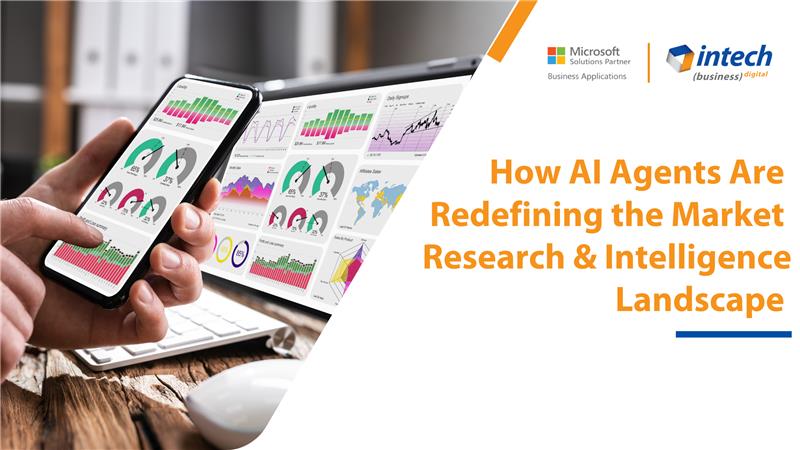Dynamics CRM v/s Dynamics 365 – How do they differ?
It is nearly the end of 2019, and by now we are sure you undoubtedly understand Dynamics 365. Incepted in 2016, Dynamics 365 completely rebranded Dynamics CRM under the name of Dynamics 365 for Customer Engagement. Because it is the combination of CRM and ERP, further it’s evident, Dynamics 365 is the future of Microsoft Business Application. With the revisions making the solution more appealing to the business.
How do they differentiate?
Both solutions are composed to serve the same purpose, be it on-premise or on the cloud. However, Dynamics 365 has more enhanced features and capabilities which are not available in Dynamics CRM such as machine learning and AI.
Below are the few features which differentiate Dynamics 365 from Dynamics CRM.
AI and Machine Learning:
Dynamics 365 leverages the benefits of AI and machine learning to help business users to derive more insightful and required details. It allows the user to perform further important tasks by helping them with understanding the data and generate more intelligent, contextual analysis, and prediction.
Dynamics 365 is introduced with the capabilities which allow the software to learn without having to explicitly programmed to do so.
Power of Power Platforms:
Be it Power BI, Power Apps or Power Automate (then Flow) – Dynamics 365 users have the perks of each. With Power BI, users can connect to the dashboards and create reports. Power Apps help the user to create and design apps without any logical and longing code. Power Automate enables the user to create automated workflows between programs including third-party apps.
LinkedIn Connect:
With Microsoft’s acquiring LinkedIn in 2016, Dynamics 365 holds deeper integration with the tool and possesses enormous benefits. Sales reps and recruiters get access to LinkedIn 500+ million professionals. It helps the users to connect with the right personnel.
With the latest update in Dynamics 365, LinkedIn Lead Gen Forms will enable users to automatically sync leads from multiple LinkedIn accounts with Dynamics 365 so that they can trace, nurture and analyze them.
Editable Grids:
Users can make inline modifications to the records both on mobile and web interface without having to open the complete record.
Email Engagement:
With this functionality, users can easily track the emails sent via Dynamics 365 and monitor whether the mail is received, opened, clicked on or the attachment has been viewed.
Relationship Insights and Relationship Analytics:
Both features are related to customers. Relationship Insights helps users to be precise about the deadlines, meetings, or any missed opportunities, etc. by scanning through emails.
On another hand, Relationship analytics will analyze the customer’s data to give users a better and clear understanding of business relationships.
Sandbox:
In Dynamics CRM, the customers receive only testing and development sandbox for 25 or more licenses, for the customers less than 25 licenses have to purchase one. However, in Dynamics 365, the business receives one sandbox as standard, no matter how many licenses are purchased.
Backup and restore:
Dynamics 365 users can perform their secure data backup and restores according to their data recovery plans. Backup to an on-premise environment is also possible.
What is the licensing structure?
The licensing term is the same for both the solutions. Dynamics CRM users must pay for the features which they are not using, which is not the case with Dynamics 365. That means users can have a custom pricing model based on the functionality needed.
Dynamics 365 has only two levels of access
- Full Users
- Team Members
Giving full users more access to less cost and saving customers money on licenses for light users. Whereas, in Dynamics CRM there are four different levels of access.
Planning to switch?
If you are using Dynamics CRM on-premise, you can continue to use it till you need it. If you are thinking of switch to Dynamics 365 on-premise, you can go for it. Similarly, you can think of migrating to the cloud environment of Dynamics 365.
In any case, our experts are here to guide you through the transition. Do you have any questions for us? Feel free to contact us at sales@intech-systems.com at any time.
About Intech
Intech Systems is a three-cloud Microsoft-certified partner that boasts deep expertise in providing digital transformation solutions for organizations by leveraging the Microsoft 365, Dynamics 365, and Azure solution stack. Intech is recognized as a top-tier Microsoft implementation partner globally and specializes in transformative technology solutions such as ERP (Enterprise Resource Planning), CRM (Customer Relationship Management), Business Process Automation, Business Intelligence, Cloud Infrastructure, Data Management, Productivity & Collaboration and Generative AI (Gen-AI) solutions. As a trusted Microsoft Solutions Partner, we are capable of doing complex technology implementations catered to an organization’s specific needs & also rapid solution implementation such as our Microsoft Dynamics 365 Business Central implementation packages. We pair our implementations with end-to-end customer support, offshore development & 3rd party integrations. With offices in India, USA (United States of America), and Singapore, we work with clients across globe to empower businesses with cutting-edge technology solutions. Our latest services aim at delivering business ready AI solutions to the customer, like our Microsoft Copilot Consulting Services & Solutions for small, medium & large enterprises. Intech’s expertise lies in building software solutions for Manufacturing, Professional Services & Healthcare. Our Dealer Management System, Sales and Service CRM for Manufacturing, Field Force Automation for Pharmaceuticals and Manufacturing Central are some of our leading industry solutions. Intech’s vision is to catalyze digital futures for operation-centric industries globally, we are at the forefront of innovation, helping organizations drive growth and innovation like never before. Contact Us to learn more.
Recent Post




How can we help? - Talk to Dynamics 365 experts for your concerns
What's New

Top Reasons to Replace Dynamics GP with Business Central [2025]
Introduction: The clock is ticking for businesses still operating on Microsoft Dynamics GP. While it...

How AI Agents Are Redefining the Market Research Landscape
Do you know your competitors are decoding consumer behavior in hours using AI agents that...

How Agentic AI Is Transforming the Manufacturing Industry [2025]
Introduction Did you know that 91% of manufacturers are planning to increase their investment in...




